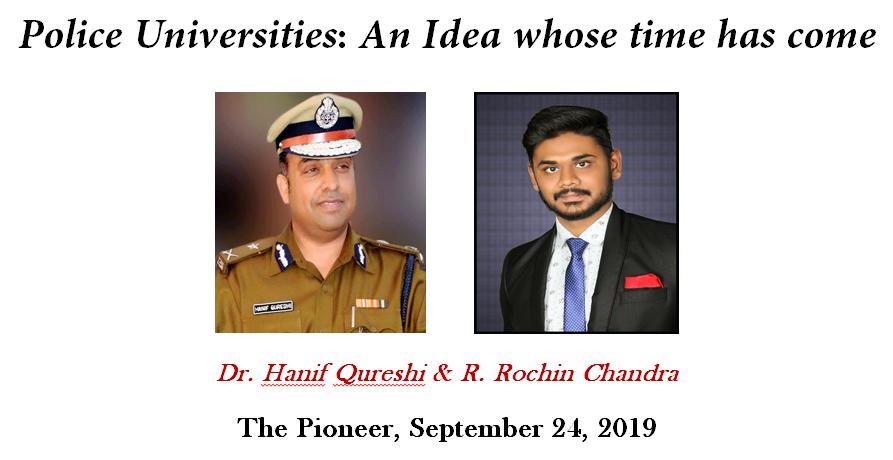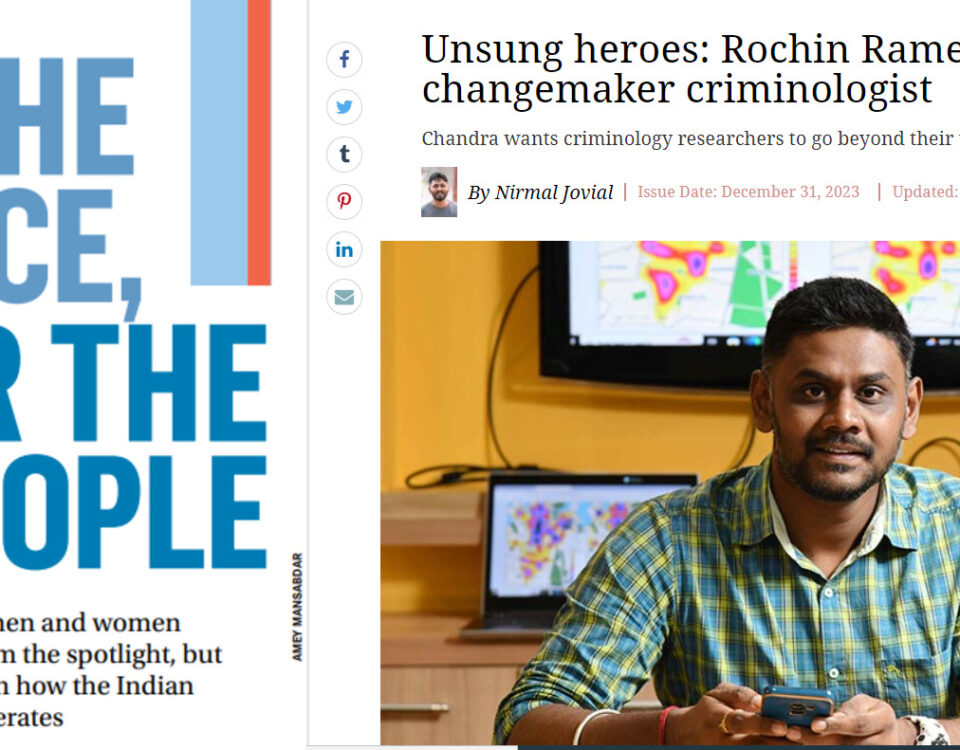Faculty Research Featured in Pioneer

University for cops
September 25, 2019Professional Opportunities for Women in Criminology & Police Science
October 11, 2019Photo Credits: The Pioneer
By: R Rochin Chandra & Vinita Kewlani
September 27, 2019 at 19.03
Filed Under:, Faculty Research, Features, Center for Criminology & Public Policy
Analysis by Center for Criminology and Public Policy’s Research Leaders Dr. Hanif Qureshi and R Rochin Chandra was recently published in The Pioneer.
The article, University for cops, welcomed the Center’s proposal to set up a central police university that will help in improving police training, skills, research and policy-making with regard to policing in India.
“A national police university dedicated to the task of overhauling the training of the force, teaching skills to deal with new policing challenges, improving the mechanisms in place to handle law and order situation, encouraging research and development in the domain of policing science, and improving investigation skills and abilities is the need of the hour”, said Chandra and Qureshi.
Recognizing the need to bring intellectualism into the police discipline, the article stressed on institutionalizing and formalizing criminology in police science curriculum. “By using criminologically driven concepts, police agencies can develop a proactive approach and get smarter about crime control”, the article said, adding that, “crime is a social phenomenon, tackling which requires police to understand the spatio-temporal distribution of crime hot-spots and also environmental and situational factors attracting opportunities for crime”.
Pointing out that police education must contribute to the formulation of evidence-based strategies that will improve police response to complex crime and policing problems, the article underlined the need for introducing new topics of crime prevention into police science courses, for integrating key theoretical insights with field experiences while teaching for policing, and for adopting pedagogical approach which is based on empirical evidence – instead of individual bravado.
Noting that the idea of national police university will be successful when its graduates are provided with professional opportunities to practice their skills and knowledge, the article said, “UPSC must take steps to introduce ‘Criminology and Police Science’ as an optional subject in civil services exam and allow lateral entry for criminology and police science graduates into the lower levels of police”.
The article also highlighted the benefits policing could have by encouraging strategic partnerships between police universities and academia on conducting research into various policing practices and other crime reduction strategies.
“Through an analysis of what works in policing and what does not, policy-makers can be given evidence-based choices on alternative courses of action. Over a period, policing will gain as a result of thorough review and examination of its practices”, said Chandra and Qureshi.





